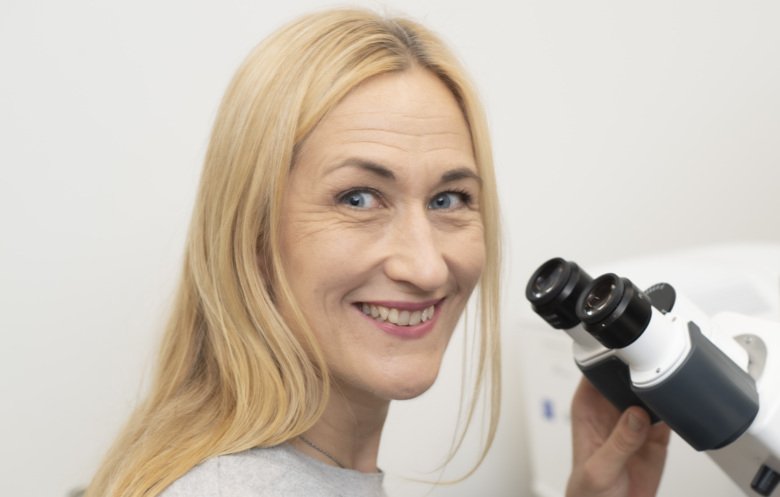Changing our view of persistent pain
Living with chronic pain is challenging – not least because of the limited number of good treatments. Camilla Svensson is researching the mechanisms behind persistent pain in rheumatic diseases and how it can be tackled in new, more effective ways.

What are you researching?
“I am a pain researcher focusing on persistent pain in rheumatic diseases such as rheumatoid arthritis and fibromyalgia. We are trying to understand what it is within the disease process that causes pain, and find new and better ways to treat it. Chronic or long-term pain has a very negative impact on life quality, and most drugs currently available for treatment either have only modest effect or are associated with problematic side-effects.”
What have you discovered?
“Our latest important discovery points toward an autoimmune component to fibromyalgia-related pain. We know that antibodies from fibromyalgia patients make pain fibres more reactive, and have seen these antibodies binding to cells surrounding the pain nerves’ cell bodies in the dorsal root ganglia; we think there may be an important link between these two observations.
We have also discovered a mechanism that allows antibodies that have formed a complex to affect neurons directly. Like immune cells, the constant part of the antibodies can then bind to receptors on the neuron. This finding was unexpected and may explain how pain can occur long before inflammation in conditions such as rheumatoid arthritis. A third important finding concerns communication between bone cells and pain neurons. We have shown that antibodies that activate osteoclasts, bone-resorbing cells, release substances that cause pain.”
What are your next steps?
“We are collaborating with other groups to try to identify the antigen that the antibodies bind with in fibromyalgia. If we succeed, there will be many potential applications, from biomarkers to treatment targets. We also want to do more detailed studies regarding how antibodies in complex formation can activate pain neurons, and investigate whether this is a general pain mechanism in autoimmune diseases. We are in a very exciting phase of pain research – our view of disease-related factors that contribute to chronic pain is fundamentally changing based on our own and other groups’ discoveries.”
Text: Anders Nilsson, in translation from Swedish
First published in the booklet From Cell to Society 2019.
About Camilla Svensson
Professor of Cellular and Molecular Pain Physiology at the Department of Physiology and Pharmacology
Camilla Svensson was born in 1973 in Vetlanda and completed her degree in pharmaceutical biosciences at Uppsala University in 1999. In 2005, she was awarded a doctorate in Molecular Pathology at the University of California- San Diego (UCSD), USA. She continued as a postdoctoral researcher at the same university from 2005 to 2008. Since 2008, Camilla Svensson has led a research group at KI, where she became an associate professor in 2015.
She has received numerous awards, including the Future Research Leader Award from the Swedish Foundation for Strategic Research. Since 2016 she has also been affiliated with UCSD as an Adjunct Associate Professor.
Camilla Svensson was appointed Professor in Cellular and Molecular Pain Physiology at Karolinska Institutet on 18 October 2018.
